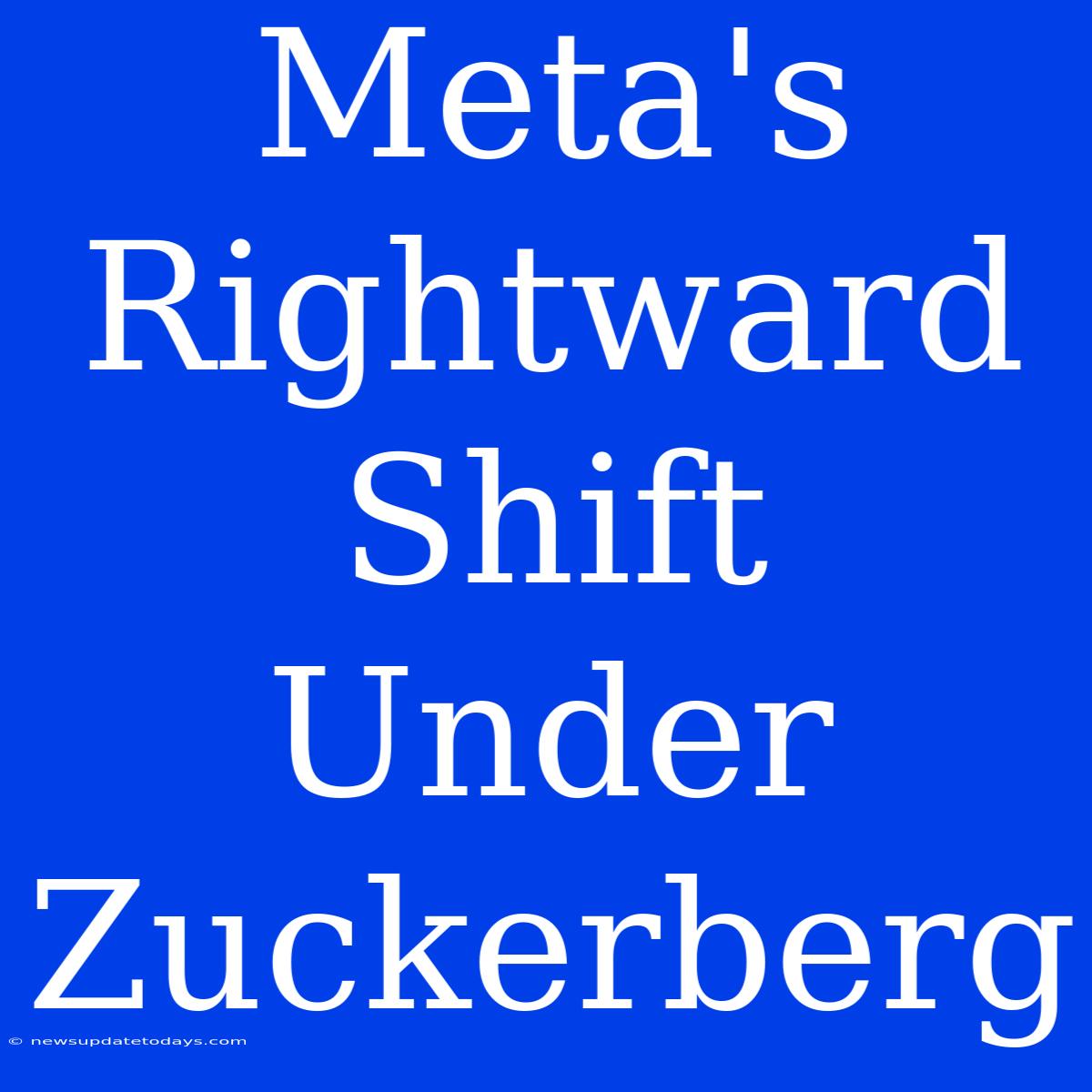Meta's Rightward Shift Under Zuckerberg: A Controversial Trajectory
Mark Zuckerberg's leadership of Meta has been marked by significant shifts in the company's approach to content moderation and its overall political positioning. While initially perceived as a champion of free speech online, a discernible "rightward shift" has emerged, sparking considerable debate and criticism. This article delves into the key aspects of this evolution, examining the evidence and its implications.
The Erosion of Content Moderation?
One of the most prominent criticisms leveled against Meta under Zuckerberg is the perceived weakening of its content moderation policies. This shift is often framed as a move to prioritize free speech, even at the expense of harmful content. Critics point to a decrease in the removal of misinformation, hate speech, and other forms of toxic content as evidence of this alleged rightward drift.
Examples cited frequently include:
- Reduced fact-checking efforts: A perceived decrease in the resources and efforts dedicated to identifying and flagging false or misleading information.
- Changes in community standards enforcement: Allegations that enforcement of existing community standards has become more lenient, allowing harmful content to proliferate.
- Increased tolerance of political polarization: A claim that the platform's algorithms inadvertently or intentionally amplify divisive content, contributing to the spread of extremist ideologies.
These changes haven't gone unnoticed. Numerous studies and reports have analyzed Meta's content moderation practices, often concluding that the platform's response to harmful content has become less robust. This has led to concerns about the impact on political discourse, societal harmony, and the potential for real-world harm.
The Business Case for a Rightward Tilt?
Some analysts argue that the perceived rightward shift is not solely ideological but also strategically driven. They suggest that by relaxing content moderation, Meta might:
- Attract a broader user base: Appealing to users who feel stifled by stricter content moderation policies on other platforms.
- Reduce operational costs: Less stringent moderation can require fewer human moderators and less sophisticated AI systems.
- Improve user engagement: Controversial content often generates more engagement, boosting metrics and potentially ad revenue.
However, this business-centric interpretation is often met with criticism. Many believe that the negative publicity and reputational damage resulting from a lenient approach to harmful content outweigh any potential short-term gains.
The Ongoing Debate: Free Speech vs. Responsibility
The core of the debate surrounding Meta's apparent rightward shift centers on the tension between free speech principles and the platform's responsibility to mitigate harm. Zuckerberg has often framed his decisions as upholding free expression, arguing against censorship and government intervention.
However, critics argue that this view overlooks the platform's significant influence on information dissemination and the potential for that influence to be exploited to spread harmful narratives. They contend that Meta has a moral and ethical obligation to actively combat misinformation and hate speech, regardless of the potential impact on user engagement or revenue.
Conclusion: A Complex and Evolving Situation
The question of Meta's rightward shift under Zuckerberg is complex and multifaceted. While the company maintains that its focus remains on fostering open dialogue, the evidence suggests a significant change in its approach to content moderation. Whether this is a deliberate strategic decision or a consequence of unintended algorithmic effects remains a matter of ongoing debate. The long-term implications for Meta's reputation, its relationship with users, and the broader societal impact of its platform will require continued scrutiny and analysis.

